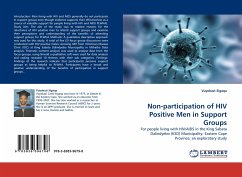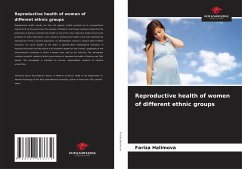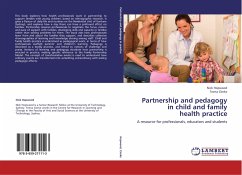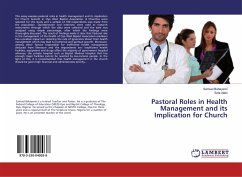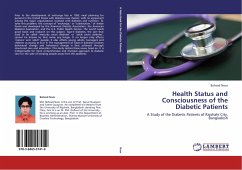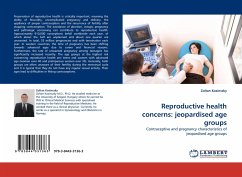
Reproductive health concerns: jeopardised age groups
Contraceptive and pregnancy characteristics of jeopardised age groups
Versandkostenfrei!
Versandfertig in 6-10 Tagen
32,99 €
inkl. MwSt.

PAYBACK Punkte
16 °P sammeln!
Preservation of reproductive health is critically important, meaning the ability of fecundity, uncomplicated pregnancy and delivery, the appliance of proper contraception and the recurrence of fertility after stopping contraception. The avoidance of abortion, ectopic pregnancy and pathologic conceiving can contribute to reproductive health. Approximately 910,000 conceptions befall worldwide each year, of which about the half are unplanned and about one quarter are unwanted. In total, 53 million pregnancies end with termination each year. In western countries, the time of pregnancy has been shi...
Preservation of reproductive health is critically important, meaning the ability of fecundity, uncomplicated pregnancy and delivery, the appliance of proper contraception and the recurrence of fertility after stopping contraception. The avoidance of abortion, ectopic pregnancy and pathologic conceiving can contribute to reproductive health. Approximately 910,000 conceptions befall worldwide each year, of which about the half are unplanned and about one quarter are unwanted. In total, 53 million pregnancies end with termination each year. In western countries, the time of pregnancy has been shifting towards advanced ages due to career and financial reasons. Furthermore, the rate of unwanted pregnancy among teenagers has significantly increased recently. The age groups at the highest risk concerning reproductive health are: teens and women with advanced age (women over 40 and primiparous women over 35). Generally, both groups are often unaware of their fertility during the menstrual cycle and it is typical that they do not have any regular sexual activity. Their ages lead to difficulties in fitting contraceptives.



